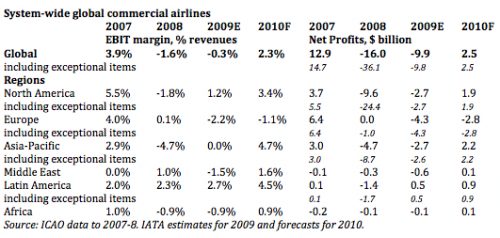The German government couldn't have chosen a more newsworthy moment to announce its intentions to slap a new departure tax onto air travel than during the week when the entire airline industry was gathered in Berlin for the 66th IATA AGM and for the ILA Berlin Air Show. The tax is estimated by IATA to add a €1 billion burden to airlines operating in Germany.
"This is the worst kind of short-sighted policy. It's a cash-grab by a cash-strapped government. Painting it green adds insult to injury. There will be no environmental benefit from the economic damage caused," said IATA director general and CEO, Giovanni Bisignani.
He appealed to the German government to look to the example of the Netherlands, which withdrew its departure tax after a few months, after having seen its negative economic impact. "The Dutch we wise and had the courage to change. I hope the German government shows leadership now and shows understanding of its activities." He vowed to lobby the German government on the issue and to work with them in attempting to get some kind of reform.
The issue of government taxation is particularly worrying for European airlines, as Europe is the only region forecast to make losses this year. IATA has upgraded its 2010 forecast to a small net profit of $2.5 billion, up from the net loss of $2.8 billion projected in its March forecast.

The IATA director general and CEO added that the best way for the industry to tackle climate change is to form a united, coordinated solution at ICAO before the next round of climate talks in Cancun, Mexico at the end of this year.
Volcanic Cloud: No Silver Lining
Also in the spotlight was the disastrous effect that the closing of European air space had during the volcanic ash crisis. Airline CEOs, including Lufthansa's Wolfgang Mayrhuber and Air France-KLM CEO, Pierre-Henri Gourgeon, vowed to fight for compensation from their governments for the losses incurred by airlines.
"The volcano crisis was actually a fight between a mathematical model and reality. There were 1,500 flights showing no traces or problems and the closing of air space was an issue of governance," said Gourgeon.
KLM's president and CEO, Peter Hartman, added: "The response to the volcano showed no respect for the importance of airlines and the EU is really an example of how it shouldn't be done. Airlines paying passengers compensation is totally wrong as the authorities were the ones who closed our airspace."
IATA's Bisignani stressed that the volcanic ash crisis had only increased the need to move forward with the Single European Sky. "I am fed up for waiting for the Single European Sky. Government must set a date and deliver," he said.
Walsh on Labour & LHR
With British Airways crew still on strike earlier in the week, British Airways CEO, Willie Walsh, spoke on labour issues during a CEO Forum session. He said airlines can no longer be held hostage by unions and agree to costs that are not sustainable in the future. He vowed to stand fast and stressed that 80% of BA's long-haul services were operating. "This will only increase if the union continues to strike," he said.
Walsh is also facing major capacity constraints at the world's busiest passenger airport and said that the UK's new coalition government's red light to a third runway would choke the country's economic growth. "I believe it is the wrong decision but I respect it. The government does want to engage with airlines to explore the capacity issues in the south east of England and we will work with it on this. But, if the UK doesn't want to participate in economic growth it will go to other parts of the world. London's loss will be Madrid's gain."
British Airway's confidence in Madrid is, of course, all thanks to its merger with Iberia and the synergies that the two airlines hope to leverage.
Vision 2050
Industry consolidation will remain a fact for many years to come, added IATA's Bisignani, who forecast that by 2050 there would be 12 global airlines making margins of over 10%, supported by an array of regional and niche carriers.
This is part of his Vision 2050. "In just over a decade, I can see $100 billion industry profits on revenues of $1 trillion. As we move towards 2050, this 10% margin will become even more robust. This is not just a crazy dream. Before the recession, at least a dozen IATA members already had 10% margins. We must make this a much broader reality. Change in all areas is possible. This vision - including sustainable profitability - can be our future."
Bisignani to Retire
In Bisgnani's personal future there will also be more free time, as the well-known and outspoken industry advocate will be retiring from his position at IATA after next year's AGM to be held in Cairo, Egypt during June. The hunt is already underway for his replacement, with a professional recruitment firm having been contracted into the job.





